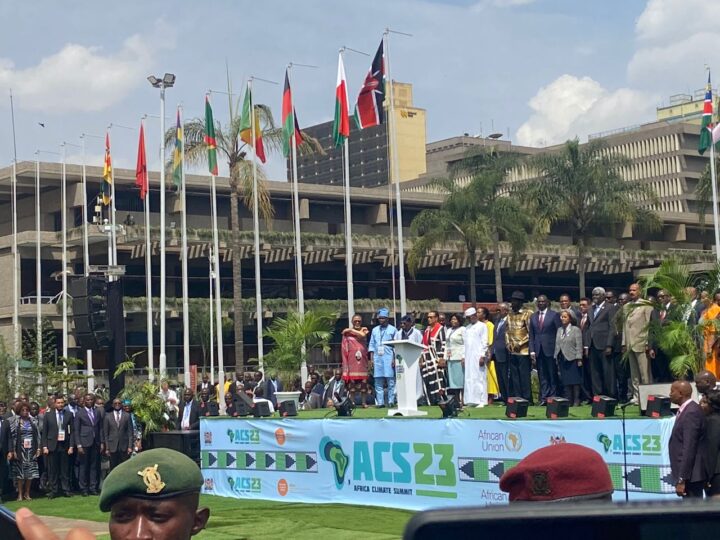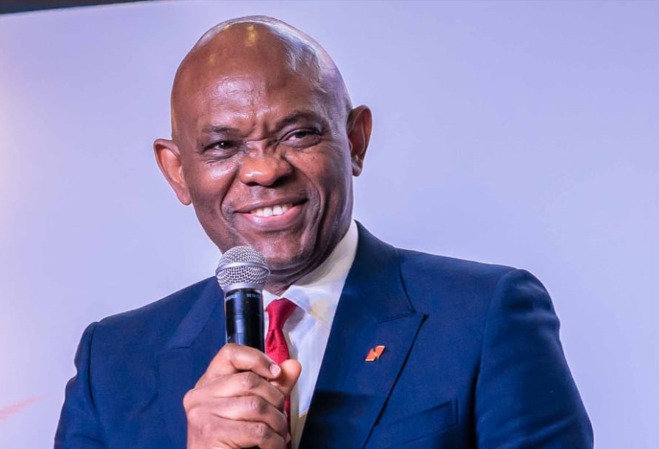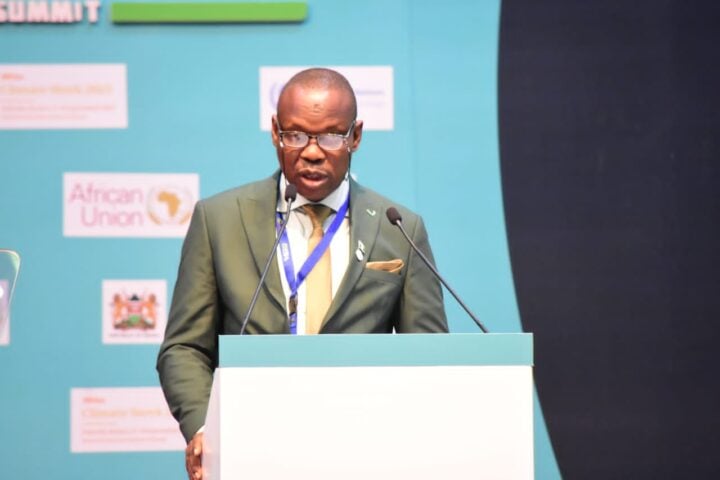As the Africa Climate Summit culminated with remarks from Kenyan President William Ruto, a new ‘Nairobi Declaration on Climate Change and Call to Action’ was birthed.
The summit, which was themed ‘Driving Green Growth and Climate Finance Solutions for Africa and the World’, centred on the need to showcase Africa as pivotal to delivering solutions capable of decarbonising the global economy and advancing green industrialisation.
Ruto said the declaration is a “new, bold, innovative, transformational and distinctly African position on how the international community must engage with the undeniable climate emergency that is threatening human well-being and life on our planet”.
In the declaration, African leaders outlined key areas of interest that would help their economies and people thrive in the face of a changing climate.
Advertisement
TheCable, in this article, examines some of the highlights.
- REFORM OF GLOBAL FINANCE ARCHITECTURE
On the second day of the summit, Ruto in a passionate speech decried the global financial system, which he said is designed to work against Africa and keep countries in the continent impoverished.
He said: “The biggest contribution to debt distress in our continent is high interest rates, we pay five times more than others, maybe, that in fact the architecture is set up in a manner that if you borrow, it will be difficult for you to pay.”
Advertisement
In a bid to change the narrative, the new declaration proposes the need to “establish a new financing architecture that is responsive to Africa’s needs, including debt restructuring and relief, the development of a new Global Climate Finance Charter through UNGA and COP processes by 2025″.
It also drew attention to the “great financial divide” in borrowing as the root cause of developing countries’ debt crisis and an impediment to climate action. The declaration called on “the financial markets to commit to reduce this disparity by at least 50% i.e from 5%-8% to 2.5 – 4.0% by 2025″.
- CARBON TAX
In his speech at the summit, Akinwumi Adesina, president of the African Development Bank (AfDB), said Africa’s gross domestic product must be revalued based on its carbon storage capacities, among other things.
In line with that, Ruto said it is time to begin having a conversation about carbon tax — a price emitters must pay for each ton of greenhouse gas emitted — because “it is among the ways that we can raise additional and adequate resources for us, to finance our development”.
Advertisement
Concretising the statements, the declaration urged world leaders to rally behind the “proposal for a global carbon taxation regime including a carbon tax on fossil fuel trade, maritime transport and aviation, that may also be augmented by a global financial transaction tax (FTT)”.
This, it stated, is to provide “dedicated, affordable, and accessible finance for climate-positive investments at scale, and ring-fencing of these resources and decision-making from undue influence from geopolitical and national interests”.
- GREEN INDUSTRIALISATION
One issue that was repetitively mentioned at the summit was Africa’s industrialisation efforts and the need for the continent to go green. At one point, Ruto had said Africa would “go green first, before industrialising”.
Accentuating this, the declaration called upon the international community to “contribute to the transfer of environmentally sound technologies, including technologies that consist of processes and innovation methods to support Africa’s green industrialisation and transition”.
Advertisement
The declaration also called for Africa’s raw material to be processed within the continent, as well as an increase in Africa’s renewable generation capacity from “56 GW in 2022 to at least 300 GW by 2030” to address energy poverty.
- FULFILLMENT OF $100BN CLIMATE FINANCE PLEDGE
At different times during the summit, African leaders reiterated the fact that the continent is among the most vulnerable to the impact of climate change, yet it only receives about 12 percent of the nearly $300bn annual financing it needs.
Advertisement
The declaration expressed concern that “only $60 billion or two percent of US$3 trillion renewable energy investments in the last decade have come to Africa”.
It, therefore, called on the global community to “accelerate all efforts to reduce emissions to align with goals set forth in the Paris Agreement; honour the commitment to provide $100 billion in annual climate finance, as promised 14 years ago at the Copenhagen conference”.
Advertisement
The declaration also called for the global community’s assistance to help African countries achieve a stable middle-income status by 2050 by ensuring “climate-positive investments that catalyse a growth trajectory, anchored in the industries poised to transform our planet”.
- GLOBAL STOCKTAKE & LOSS AND DAMAGE FUND
Ahead of COP28, African heads of state intend to use the Nairobi Declaration as the basis of their negotiating position. The document also called for the operationalisation of the loss and damage fund agreed at COP27 in Sharm El-Sheikh, Egypt, in 2022.
Advertisement
It stated that there should be a “resolve for a measurable Global Goal on Adaptation (GGA) with indicators and targets to enable assessment of progress against negative impacts of climate change”.
The declaration said the first Global Stocktake — the inventory taking of the world’s climate action efforts — happening at COP28 should be an “opportunity to correct course by including a comprehensive outcome, both backward and forward-looking”.
Add a comment






